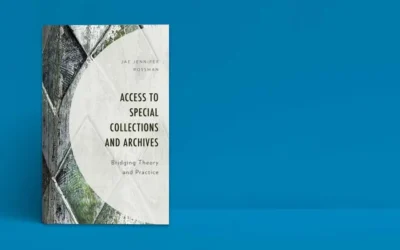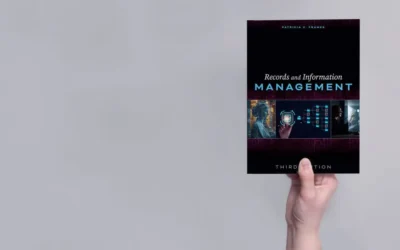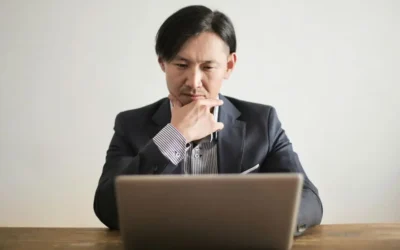Interview with the Editors: Joyner and Laskowski on Law Librarianship
Lauren Hays
Recently, I had the pleasure of interviewing Zanada Joyner and Cas Laskowski, the editors of Introduction to Law Librarianship, an open access book for those interested in learning more about the profession.
Please introduce yourselves to our readers.
My name is Zanada Joyner, and currently, I am the Associate Director for Collections and Information Discovery at the Thurgood Marshall Law Library, which is at the University of Maryland School of Law.
I am Cas Laskowski, Head of Research, Data, & Instruction, Director of the Law Library Fellows Program, Technology & Empirical Librarian, University of Arizona Daniel F. Cracchiolo Law Library
Briefly summarize Introduction to Law Librarianship.
It is the only open-source textbook for our profession. It is a compilation of expertise across law library types and job duties. It is structured to provide a foundation for those entering the profession. Specifically, we compiled writings by librarians at different stages of their career, and also on different perspectives on the profession of law librarianship, and the text is meant to serve as a textbook.
Why did you decide to edit this book?
Our profession had a great deal of articles, but they are not easy to discover or compile for students or those new to the profession. There were older texts on the profession, but they were not structured as a typical textbook, nor were they current. We wanted to fill this niche.
It concerned us that there was not a current text for students interested in law librarianship. Additionally, we thought it would be nice to have something specific to our profession and specific to the kind of work that we do. The book is meant to serve as an evolving text. It is an open-source publication on purpose.
Why did you decide to publish it as an open book using Pressbooks?
Because we were committed to it being open, easily adopted into existing courses, and under a Creative Commons license so instructors felt empowered to tailor the material to their needs. Pressbooks is an emerging platform that provides the structure to make a high-quality book without a full publishing team behind you.
Further, eventually there will be a second edition and hopefully subsequent editions. It is supposed to be a growing body of work, and it is not supposed to be stuck in time.
Is there anything you wanted to include but were unable to?
Yes, there are many sections we think are too thin and would like to grow, and I think it is just going to be a matter of finding the people who are willing to go on this journey with us and write those chapters.
For example, our original edition did not have a chapter on DEI, though we did include suggested readings. We have a chapter in post that will replace that and fill the gap.
What are two things you hope all readers take away from the book?
Cas: That there are so very many different facets to law librarianship. I want interested students to see where they might thrive in the profession, existing professionals to expand their skills or find new areas of growth, and all in our profession to have a greater understanding and appreciation of the work done by our colleagues in different departments and library types.
Zanada: We hope readers will feel empowered after reading the book. We also hope people will connect and network by reaching out to authors.
What is your favorite part of being a law librarian?
Cas: I love empowering my patrons to flourish, whether that is by teaching my students to trust and expand their critical skills to engage in future technologies or by giving public patrons the tools and information they need to tackle their current needs.
Zanada: No two days are the same. I also think one of the best parts is that it forces me to change and grow in ways that perhaps I otherwise would not. Third, I have never met more brilliant, talented, smart, and charitable people. I have never met such generous souls who are always willing to help, than in this profession.
Is there anything else you would like to share?
Zanada: I want to compliment Cas for having the idea for the book. I also want to thank the chapter authors. Without them, there would not be a book.
Lauren Hays
Dr. Lauren Hays is an Assistant Professor of Instructional Technology at the University of Central Missouri, and a frequent presenter and interviewer on topics related to libraries and librarianship. Please read Lauren’s other posts relevant to special librarians. Take a look at Lucidea’s powerful integrated library systems, SydneyEnterprise, and GeniePlus, used daily by innovative special librarians in libraries of all types, sizes and budgets.
Never miss another post. Subscribe today!
Similar Posts
Texas Archive of the Moving Image: Interview with the Digital Archivist
I recently interviewed Grace Muñoz about her work at the Texas Archive of the Moving Image. Her work on improving the discoverability of the multimedia collection is fascinating.
Interview with Author and Librarian Dr. Jae Rossman on Special Collections and Archives
Dr. Jae Rossman wrote Access to Special Collections and Archives, available now from Rowman and Littlefield. The book is an excellent resource for special librarians who work with special collections and archival materials.
Interview with the Author: Dr. Patricia Franks on Records and Information Management
Dr. Patricia Franks is the author of Records and Information Management, now with an upcoming third edition to be published by ALA Neal-Shuman in the spring of 2025. My interview with her follows.
Are There Drawbacks to Using GenAI for Research?
Researchers must take responsibility for understanding how GenAI works and closely review literature search results before relying on them. Let’s take a look at three major drawbacks for researchers and special librarians to consider when leveraging or recommending GenAI platforms.




Leave a Comment
Comments are reviewed and must adhere to our comments policy.
0 Comments